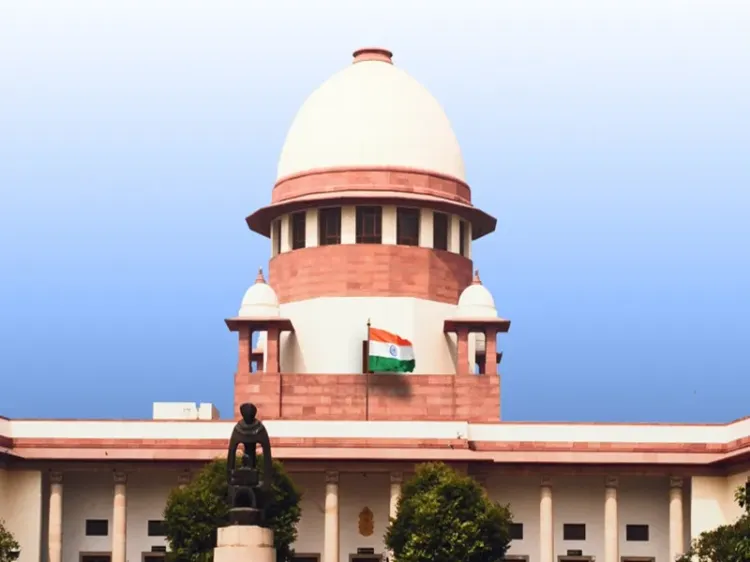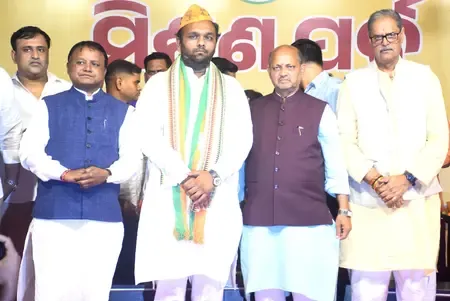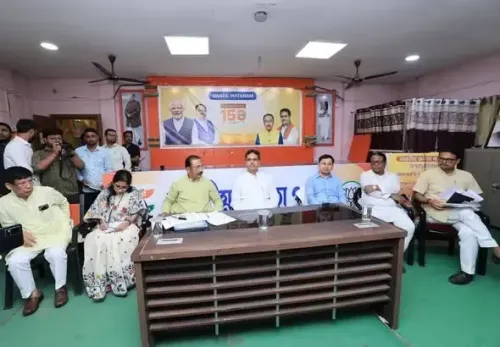Why Did the Supreme Court Reject the New Petition Against the Waqf (Amendment) Act?

Synopsis
Key Takeaways
- The Supreme Court has declined to hear a new petition against the Waqf (Amendment) Act.
- Amendments aim to improve transparency and management of waqf properties.
- The Union government provided assurances regarding waqf governance.
- Concerns about property encroachments and misuse of waqf provisions were raised.
- A comprehensive review was conducted before enacting the amendments.
New Delhi, Apr 28 (NationPress) The Supreme Court declined to entertain a new petition contesting the recent modifications to the Waqf Act, 1995. A bench led by CJI Sanjiv Khanna informed the petitioner that it cannot address numerous petitions on the same subject and advised that they might file an intervention application in the ongoing petitions against the Waqf (Amendment) Act, 2025.
On April 17, during the previous hearing, the CJI Khanna-led bench decided to consider five writ petitions as lead cases, designating other requests as intervention applications. It also instructed the apex court's registry to rename the proceedings as "In Re: The Waqf (Amendment) Act, 2025".
The bench, which included Justices Sanjay Kumar and K.V. Viswanathan, granted a week for the Centre, state governments, and Waqf Boards to submit their preliminary responses.
During the proceedings, the Union government assured the Supreme Court that it would not revoke provisions related to 'waqf by user' or add non-Muslim members to the Waqf Board.
The court scheduled the next hearing for May 5, emphasizing that it will be a preliminary hearing, and interim orders may be issued if necessary.
In its initial affidavit, the Centre stated that amendments were enacted to curb the misuse of waqf legislation, which led to encroachments on government properties, while also ensuring proper administration and transparency within the Waqf Boards across the country.
According to the Union Ministry of Minority Affairs, there have been reports of waqf provisions being exploited to encroach upon both private and government properties, with a shocking 116 percent increase in auqaf areas since the amendment in 2013.
The Centre's document submitted to the top court revealed that numerous Waqf Boards have been operating in a "non-transparent manner," often failing to disclose complete information to the public.
The government highlighted that due to a lack of adequate safeguards in the previous regime, both government and private properties were incorrectly declared as waqf properties.
The affidavit noted, "The provisions of Sections 3A, 3B, and 3C address this long-standing issue. There are alarming instances of government and private lands being erroneously designated as waqf properties."
The Union government argued that the Waqf (Amendment) Act, 2025 aims to modernize the management of waqf properties in India through transparent, efficient, and inclusive practices. It emphasized that the reforms focus solely on the secular and administrative aspects of waqf institutions, including property management, record-keeping, and governance, without infringing on essential religious practices or tenets of the Islamic faith.
The preliminary reply document stated that prior to the introduction of the Waqf (Amendment) Act, 2025, there was a comprehensive review at both the executive and parliamentary levels to grasp the issues affecting the previous statutory regime and to identify appropriate remedial measures. It contended that the "primary religious right, which is the right to make a dedication, remains unaffected, as the administration of any specific waqf continues to reside with the mutawalli according to the purpose behind such waqf."









